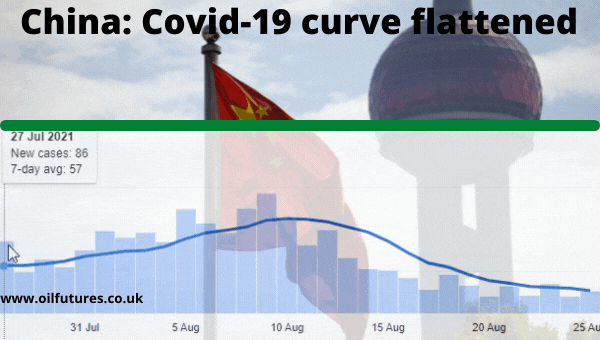China, the apparent epicentre of the Covid-19
catastrophe, once again proved once thing it is really good at – keeping the
spread at bay.
The data of daily infections, according to Google,
shows that the curve is flattening, indeed. In proportion, the Chinese
authorities have eased the restrictions that had been in place in major cities.
In light of new development, traffic levels are
slowly returning to near normal levels with industries gradually gathering the momentum.
The awakening of the world’s second largest economy –
and the world’s top crude oil importer – has rekindled the sprit in the
markets, which saw the worst monthly drop in oil price in August - for months.
The positive sentiment that the investors see with
regard to China’s containment of the new wave of the pandemic, is partially
responsible for lifting the price of crude oil, despite the warning from the
OPEC+ about a surplus of the commodity next year.
If the price of crude oil goes up at an exponential
rate, however, the Chinese will feel the pinch once again, as they did in July.
China has attributed the rise in cost of raw materials to its slow economic
growth, fuelled by the rising oil prices.
In India, the world’s third largest importer,
meanwhile, the use of petrol has gone up considerably. It, however, is still
lower than that of what it was in 2019.
The use of diesel, meanwhile, remains relatively low
in India that has worried the investors; it is the most important fuel in the
vast country and the trend clearly reflects the industrial activities.
Unlike in China, the pandemic situation in India
does not show any sign of hope of full recovery – unfortunately. On the
contrary, the rates of infections are going up in major cities, including the
commercial capital, Mumbai.
The pandemic situation in the rest of Asia is
worrying too. This may be the reason that OPEC+ predicted surplus of crude oil if
they keep increasing the output.
Indonesia, Japan, the Philippines, Vietnam and
Thailand are battling widespread outbreaks across their respective countries
which could result in a devastating, collective economic setback.
In this context, the success that China achieved in
controlling the outbreaks gives the investors a ray of hope amidst a palpable
combination of gloom and uncertainty.







